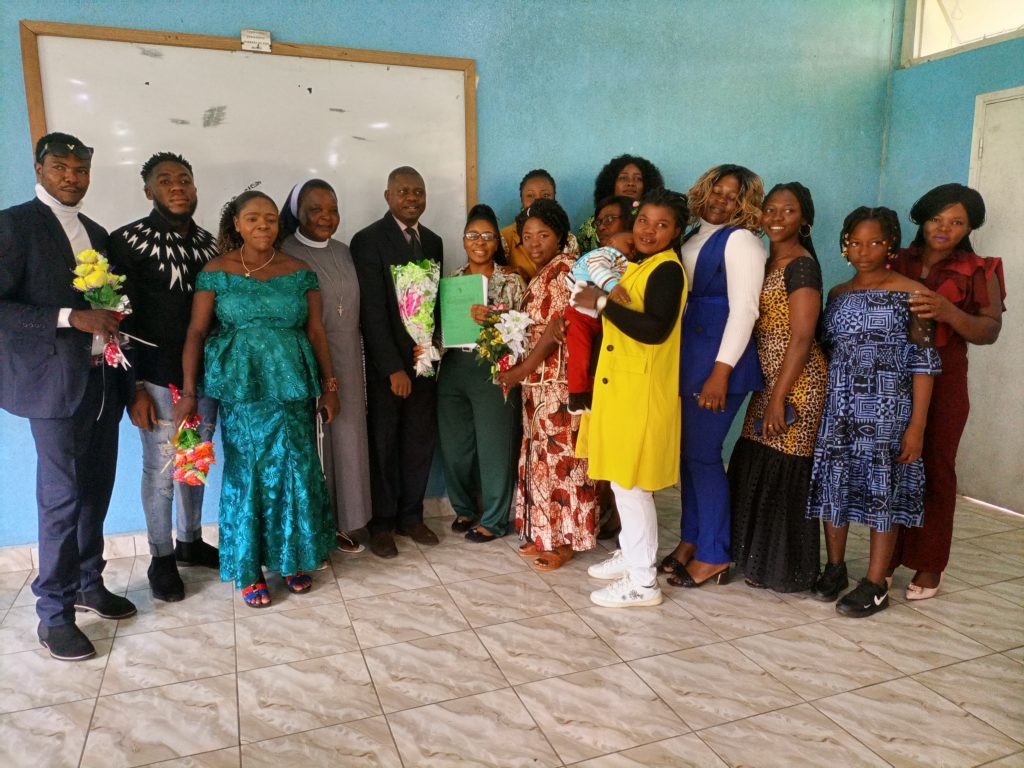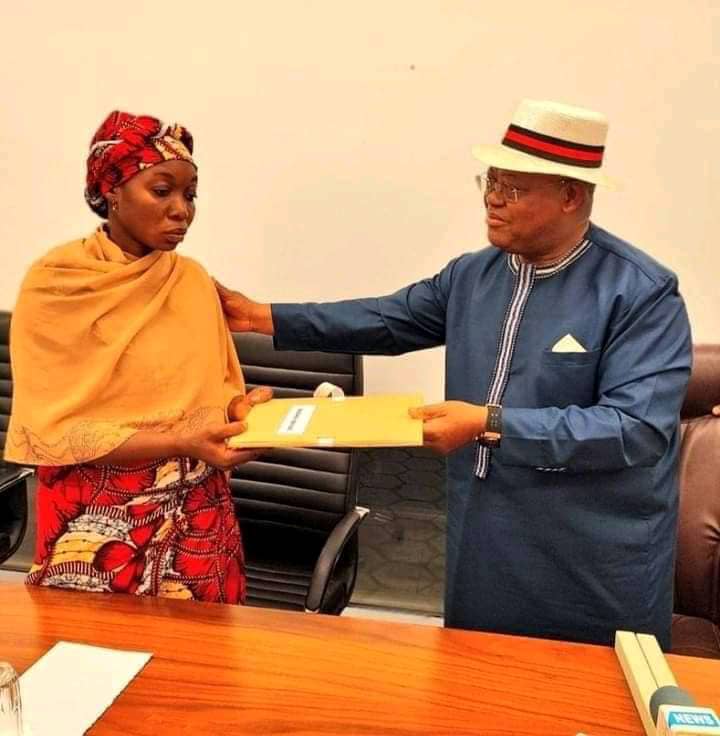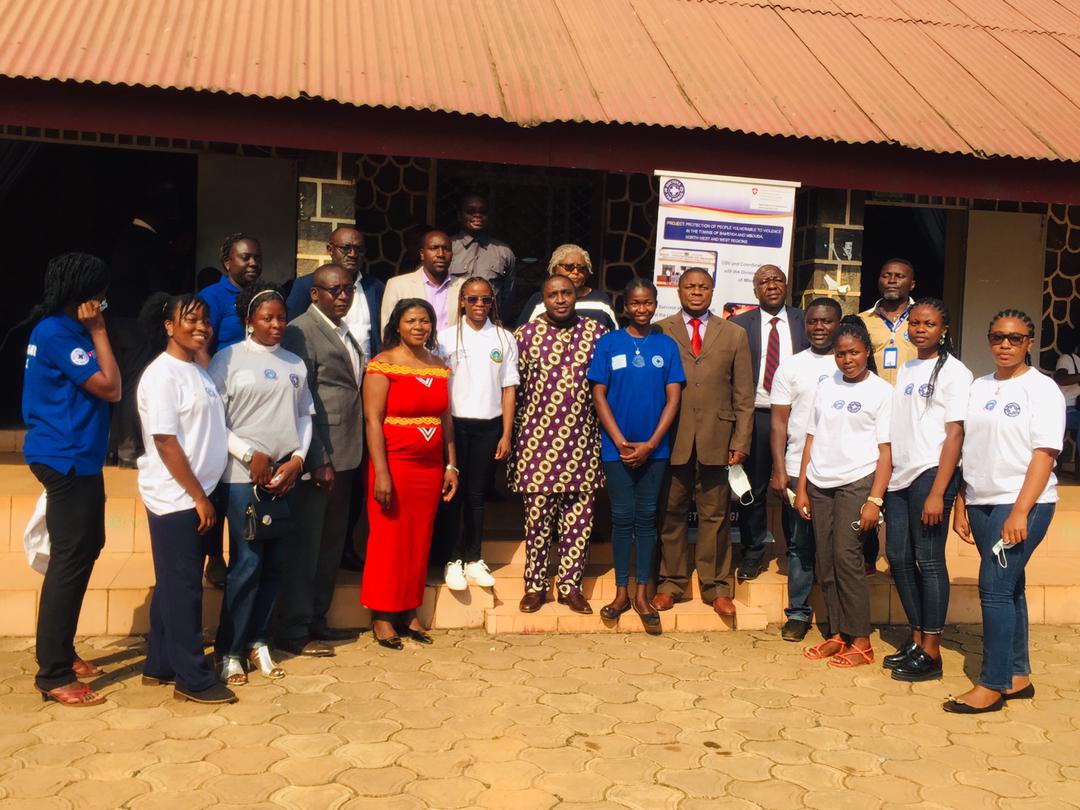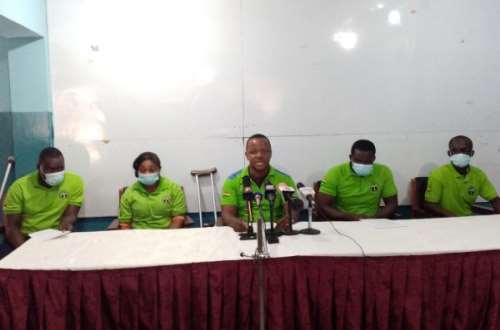
By Kesah Princely in Buea
Unlike decades ago when Traditional Rulers in Cameroon had a strong grip on their communities, Mbuh Lucy, a student of the Pan African Institute For Development, Buea, says much has changed today.
She made the revelation while defending a Master’s thesis titled: Role of Traditional Rulers in Conflict Resolution and Peace Building in Cameroon: Case of Chiefs of in Buea Municipality, Southwest Region.
If there has been a particular time that the influence of chiefs was highly felt by the local population, then, that was during the British administration, with their policy of Indirect Rule.
There was a direct connection between Traditional Rulers and the people as the former served as administrators under the supervision of the British government from 1922 to 1961.
Chiefs remained active through the House of Chiefs, even after the independence of Southern Cameroons, today’s Northwest and Southwest regions, on October 1 1961. The independence was through reunification with La République du Cameroun.
However, this influence soon started diminishing with the collapse of The House Of Chiefs a few years after independence.
Why the sudden decline?
Mbuh Lucy’s research findings addressed why most traditional rulers have lost influence and respect from their people, an aspect she expatiated during an interview with TWIF NEWS shortly after the rigorous defence session.
“Chiefs are so much into politics and their reliance on the government makes it difficult to take key decisions about their people,” she intimated.
Lucy masters the subject well partly because she hails from Njinikom, Boyo division of Cameroon’s Northwest; where the people are so connected to their Traditional Leaders.
“Chiefs need to quit politics to concentrate on ruling their people. The two [siding with the party in power and ruling the people in their respective chiefdoms and kingdoms] do not go together and trying to force it, the result is only losing respect from locals,” she said.
The scholarly piece is even more invaluable because it comes amidst an ongoing separatist war in Cameroon’s Northwest and Southwest regions, and regrettably, Traditional Rulers play rather a passive than active role in resolving the conflict and employing peace-building majors.
Apart from the fact that acting more like politicians instead of Chiefs as they normally should have affected their participation in peace-building and conflict-resolution efforts, the researcher thinks other factors preclude their full inclusion and participation in the art.
Lucy revealed that Traditional Rulers have not been allowed to freely express their thoughts on how the six-year-long war could be laid to rest.
Although Traditional Rulers were represented at a Major National Dialogue convened in 2019 by the country’s President to seek a solution to the conflict, they feel that they should be given a bigger platform to propose their ways of a peaceful resolution.
The researcher strongly recommended that chiefs be trained in modern conflict resolution skills.
This, Lucy explained, will empower them to champion peace-building processes in their various communities.
At the moment, most of these local authorities organize festivals and football activities to promote peace and a return to normalcy. But to Lucy, this is not enough of a contribution from the custodians of the land.
The one-year-long academic piece came to reawake chiefs to know that they owe their locals the duty to stand with them in both bad and good moments, instead of taking sides with the government.
After presenting the over 115-page thesis for well over an hour, a three-man jury awarded Mbuh Lucy an A plus, describing the research product as timely, relevant and impactful.
The researcher encouraged dozens of persons with disabilities like herself who turned out to attend the defence to work hard, adding that formal education is a vital tool in changing negative societal perceptions about them.
Following the defence which took place at the Pan African Institute campus in Buea, Friday, October 28, Mbuh Lucy who holds a Bachelor’s degree in History will soon bag a Master’s in Peace, Conflict and International Relations.
Apart from being strongly involved in academics, Lucy is equally a Civil Society Activist.
She invests time militating for the meaningful inclusion and full participation of her peers with disabilities in mainstream activities.
The scholar cum disability advocate has a strong conviction that persons with disabilities in Cameroon can have equal opportunities if they unite and collectively press for the respect of their rights.
Lucy is currently the Vice President of the Foundation for the Inclusion and Empowerment of Persons with Disabilities, FIEPWD, a local NGO fighting for a decent and comfortable life for persons with disabilities in Cameroon.





















